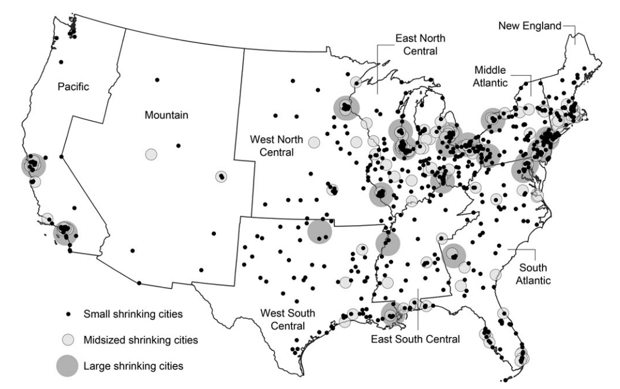Population loss is about more than just people. It’s also about the salaries that go with them.
Between 2017 and 2022, income tax filers who moved out left the Memphis region with deficit income as they took $1.2 billion in salaries with them.
Here’s how it breaks down:
In 2017-18, 862 tax filers moved out of the MSA, taking $222 million in earnings with them.
In 2018-19, 375 moved out, taking $190 million.
In 2019-2020, 1,010 moved out, taking $207 million.
In 2020-2021, 1,589 moved out, taking $257.4 million.
In 2021-22, 2,382 moved out, taking $318.3 million.
The Only Major Tennessee Region In The Negative
Meanwhile, Tennessee’s other large regions – Nashville, Knoxville, and Chattanooga finished on the positive side of the ledger between 2017-2022.
Knoxville had a net gain of $2.7 billion, Chattanooga gained $1.3 billion, and Nashville recorded a dramatic gain of $7.2 billion.
Other cities doing well included Richmond, Seattle ($6.4 billion); Austin, ($12 billion); Oklahoma City, and Denver ($2.5 billion).
Cities like Memphis that also lost income were Louisville (-$1.3 billion); Detroit (-$6 billion); St. Louis, Milwaukee, Birmingham (-$600 million) Kansas City, Los Angeles, Milwaukee, and Philadelphia.
Temporary Population Loss?
Researchers have concluded that that COVID produced an out-migration of high earners from large metro areas, and while some researchers say this is only temporary, that may not be the case for Memphis which had been losing population years before the pandemic.
That said, according to this data, Memphis’s population loss did accelerate in the years of the pandemic. For example, just since 2010, city of Memphis has lost almost 30,000 people.
This data comes from the Internal Revenue Service’s (IRS) Statistics of Income program on U.S. population migration at the county level. The data track individual income tax filers who changed addresses from one year to the next and reports the number of tax filers moving between counties (a proxy for households), the number of personal exemptions among those filers (a proxy for individuals), and the total adjusted gross income reported on their returns (a proxy for household income).
Source: Internal Revenue Service
***
Join me at the Smart City Memphis Facebook page and on Instagram where these blog posts are published along with occasional articles, reports, and commentaries that are relevant to Memphis.





Good afternoon. Yes, we should be growing the pie better than we are doing in West Tennessee. The Memphis MSA should not be losing population and the associated income that goes when people leave, But, I am going to add a but, From 2018 through 2022, the Memphis GDP grew for $77.8 billion to $96.2 billion — a 23.6 % rise — doing substantially better than inflation during that period. We are a small Metroplitan economy, but we did OK, particularly given the pandemic wrecking large parts of 2020 and 2021. Fortunately, logistics and medical services were modestly strong during that period. The leaving salaries were not a good thing, but they amounted 0.3% of the GDP for the typical year. Per capita income rose from $46,218 in 2018 to $56,440 in 2022 (22.1% – still beating inflation) so those of us who remained behind saw some income improvement during that period — and, during post pandemic years, income for the poorest workers rose more quickly than for high income workers (that reversed in 2024).
Thanks for the comments.
My concern is that we have been showing leakage in incomes for at least 15 years. That was the first time I saw these numbers. I must have calculated wrong. When I consulted FRED, I got a much, much smaller increase in per capita GDP, but regardless, it seems to me to indicate the tale of two cities (region) that exist here and whose trend lines challenge us for answers.
I checked per capita income growth – about 6%. I should have checked gdp per capita.